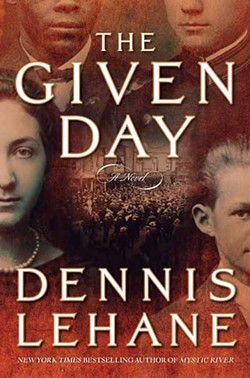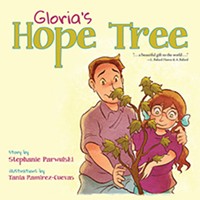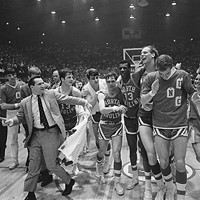A review of Dennis Lehane's The Given Day
Historical fiction touches on race, corruption in Boston
By Erik SpanbergWe could start with the typical blandishments. An epic novel. A career-defining work. A gripping tale.
All true, but let's get to the most important thing: Dennis Lehane's The Given Day grabs your attention and won't let go. It's one of those literary marvels readers of popular fiction treasure, a combination of tight plotting and sharp characters set amid fascinating times.
Beginning with the 1918 World Series and Red Sox pitcher Babe Ruth, the novel dips a toe in Ohio and Oklahoma before delving full-bore into a sweeping portrait of Boston society high, low and in between. From Faneuil Hall to Fenway Park and beyond, Lehane sketches the graft, corruption, suspicion and dark humor running rampant.
He sprinkles the cast with the perfect blend of historical figures and episodes, from the Boston police strike and riots to the flu pandemic that swept across the country. From a young, manipulative federal operative (future FBI director J. Edgar Hoover) to a governor with grand ambitions (future president Calvin Coolidge), Lehane has done his homework but, thankfully, never makes it feel like a history lecture for his readers.
The author also manages the literary high-wire act of making his historical and fictional characters come to life without giving either one short shrift. Instead, the swirling panorama offers a luxurious verisimilitude that melts pages away in great clumps at a time.
Danny Coughlin leads the cast. He hails from a family of Irish immigrants made good in America, thanks to the cunning ways of a patriarch who has risen through the ranks of the Boston Police Department. The Coughlins have a finely appointed house, a driver and a strict adherence to Catholicism and upholding social standing.
Danny disappoints in unique ways. As a young police officer, he takes on assignments to infiltrate the anarchists and Bolsheviks, as well as the fledgling policeman's union. In both cases, the results surprise and repel his family. Danny unknowingly takes up an affair with a beguiling terrorist and later finds himself sympathizing with his fellow downtrodden officers as he takes the reins as a union leader rather than his assigned role as an informant.
In other words, underpaid, overworked and underappreciated police departments were just as common a century ago as they are today.
Lehane proves himself a master storyteller, setting his characters in motion for the inevitable collision. There is Danny's estranged love, Nora, an Irish immigrant taken in by the Coughlins four years earlier. She harbors dark secrets from her past even as Danny's spiteful brother woos her.
Thomas Coughlin, Danny's father and a captain in the police department with infinite connections, rages as his family splinters. Matters grow more complicated as Danny's uncle, a sadistic police lieutenant, wreaks his own havoc.
In a series of marvelous vignettes, baseball star Ruth carouses and swats monstrous home runs as Boston and much of the nation come unhinged. Witness Lehane's description of a day at Fenway:
"[Ruth] hit his fifteenth in the first game back home, against the Yanks, plopped it high in the upper deck of the right field bleachers, watched the fans in those cheap seats fight for it like it was food or a job as he trotted down the first base line and he noticed how full the seats were across the entire park."
Labor strikes break out everywhere. Ruth, eager to boost his salary in a clash with management (sound familiar?), muses on the futility of fighting the money men even as he makes a lucrative living.
Government-backed repression in the name of defeating terrorism boils over into harassment and violence. Reds, Marxists and Bolsheviks threaten, cajole and send tremors through the city's power corridors. Some of the rhetoric leads to terrorist acts, but much of it is pointless navel-gazing, reinvigorated by the excessive, violent police response.
At the same time, Boston's searing racism creates another layer of mistrust in a city where graft is just part of doing business. Here Coughlin's cruel, racist uncle intersects with Luther Laurence, a black munitions worker with a good heart and a bad past.
Luther arrives in Boston as a fugitive from Tulsa. He leaves his pregnant wife behind, along with an uncharacteristic violent streak sparked by a dalliance with a vicious numbers runner. A family connection brings him to a patrician black family, enmeshing Luther in the dangerous pre-Civil Rights era of W.E.B. DuBois and the NAACP. And Luther's day job? Working as a servant in the Coughlins' home.
With those pieces in motion, the novel puts Danny, Nora and Luther into a dark and violence-plagued world, a place where cynicism threatens to drown idealism without so much as a second glance. They may be living in historical times, but Lehane manages the neat trick of making everything seem wobbly. Nothing is foreordained. It's all a scramble.
There's no need to hammer home the obvious parallels to life in the post-9/11 world, so Lehane spares his audience any great imparted lessons from history. He's too busy telling a great story, overpowering us with the stench of the stockyards, the burn of a stiff drink and the unsettling passion of true believers.
This isn't a civics lesson, it's a time and place resurrected, teeming with brawls, blood and buckets of alcohol. Much like Kurt Andersen's Heyday, Lehane's novel delivers historical fiction at its very finest. Don't miss it.
The Given Day by Dennis Lehane
$27.95, William Morrow, 704 pages
Latest in Books
More by Erik Spanberg
-
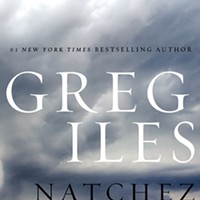
Book review: Natchez Burning
Jul 2, 2014 -
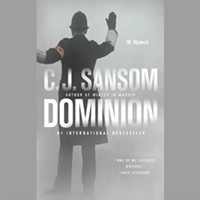
Book review: Dominion
May 16, 2014 -
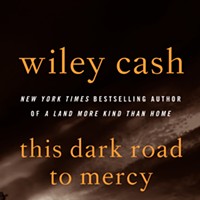
Book review: Wiley Cash's This Dark Road to Mercy
Mar 21, 2014 - More »
Calendar
-

NEW WINDOW GALLERY-Pat Rhea-ACRYLIC PAINTINGS-April 05-30 2024 VALDESE, NC 28690 @ New Window Gallery/Play It Again Records
- Through April 30, 12 p.m.
-
Derek Hough - Symphony Of Dance @ Ovens Auditorium
-

"Blood Residue Analysis of Paleoamerican Stone Tools in the Carolinas" @ Native American Studies Center
- Fri., April 26, 12-1 p.m.
-

ARTS RENAISSANCE, a GALA supporting the ARTS in South Carolina @ the Columbia Museum of ART
-
 The Piano Guys @ Ovens Auditorium
The Piano Guys @ Ovens Auditorium
-
Charlotte ink 7
Behind the pain with a trio of the Queen City's finest tattoo artists
-
The death of CAST 5
What really happened to Charlotte's beloved experimental theater company?
-
Jessica Moss Makes the Gantt Center a Safe Zone for Local Artists 2
Flipping the script

